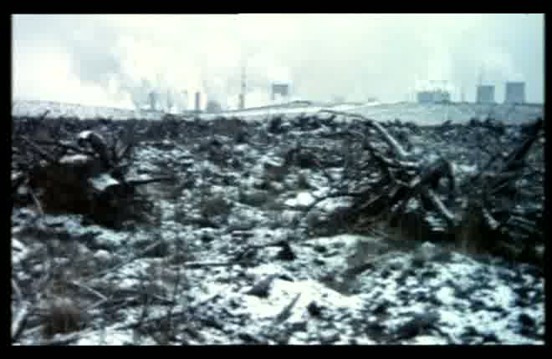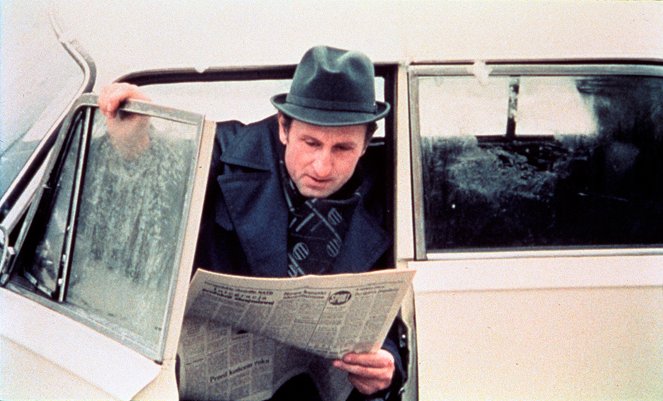Regie:
Krzysztof KieslowskiDrehbuch:
Krzysztof KieslowskiKamera:
Sławomir IdziakMusik:
Stanisław RadwanBesetzung:
Franciszek Pieczka, Mariusz Dmochowski, Jerzy Stuhr, Jan Skotnicki, Stanisław Igar, Stanisław Michalski, Michal Tarkowski, Andrzej Skupień (mehr)Inhalte(1)
“Die Narbe” “beginnt wie ein Mafia-Thriller”, so das Kino Kunstmuseum Bern, “schwarze Limousinen, Bodyguards, ein abgelegenes Waldstück. Doch es geht nicht um eine Abrechnung zwischen feindlichen Clans, sondern um ein neues sozialistisches Bauvorhaben und seine Spätfolgen. In diesem ungewöhnlichen Spielfilm brilliert Franciszek Pieczka mit der phantastischen schauspielerischen Leistung als Direktor, der sich – zunächst zögernd – für die Arbeiter und gegen das System entscheidet.” Tatsächlich, der Ingenieur Bednarz wird zum Leiter eines Chemiekombinats berufen, das durch ehrgeizige Lokalpolitiker ebenso schlecht geplant ist wie es auf den renitenten Widerstand der Anwohner stößt. Der Konflikt ist unausweichlich, eine Lösung nicht in Sicht. Kieslowskis “Die Narbe” ist ein wunderbar unaufgeregter Film, in dessen sensiblen Bildern sich bereits die ökologischen und politischen Katastrophen abzeichnen, auf die nicht nur das Polen der siebziger Jahre zusteuerte. Und mittendrin der aussichtlose Versuch eines Einzelnen, Verantwortungsbewusstsein, Haltung und praktische Vernunft zu retten. (Verleiher-Text)
(mehr)Videos (1)
Kritiken (1)
The Scar is, of course, a product of its time of creation, namely the mid-70s, but thematically and in its execution it foreshadows the films of moral unrest of the 80s, and reducing it to a construction theme is inappropriate. The film demystifies decision-making processes in a communist state, where there is talk of the well-being of the majority, but individual concerns are forgotten and the potential consequences of investment projects are not taken into account. The beginning of ecological awareness and civic protests, which culminated in the Solidarity movement in the early 80s, can be seen. The title The Scar is a symbolic parable for the devastated forest near a large chemical factory, but also for the psychological trauma of the main characters, who must confront their ideals with the unpleasant effects of their actions on the surroundings. For Krzysztof Kieslowski, it was his debut, but even then he clearly indicated his potential and set the stage for his later masterpieces. He was able to choose first-rate actors and motivate them appropriately. Of course, Franciszek Pieczka is great, but Jerzy Stuhr is also interesting, whom Kieslowski discovered for the film. In summary, it is a very decent psychological socio-critical film of its time, which can now be seen as a testimony of bygone eras. Overall impression: 55%.
()


